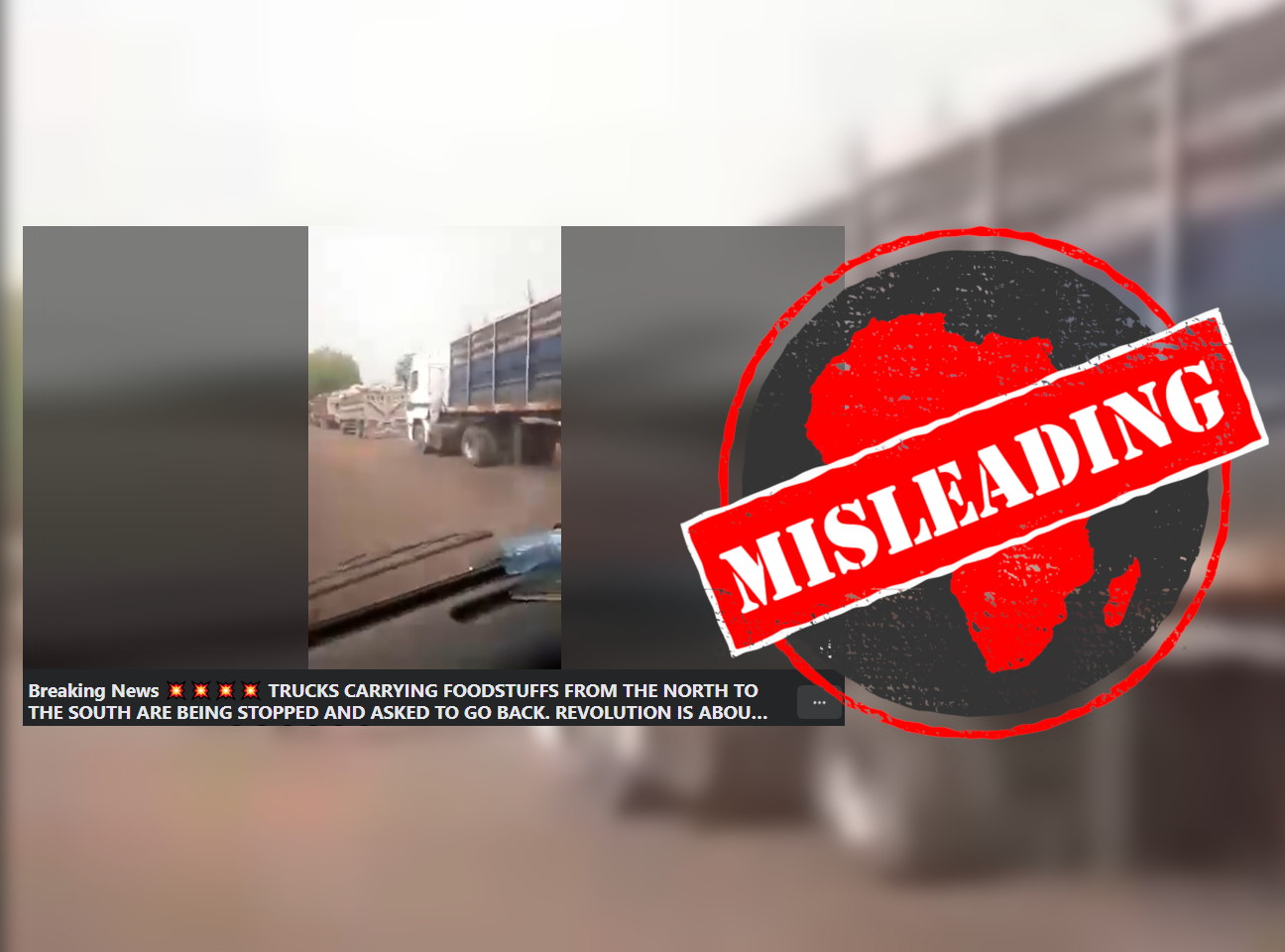IN SHORT: A video showing trucks carrying food being blocked from entering the southern part of Nigeria is from as far back as 2021. The incident did not take place in February 2024.
Several Facebook users claim that trucks carrying food from the northern part of Nigeria are being stopped from entering the south.
The posts feature a video of trucks lined up on the side of the road. In the background, a man can be heard saying that the trucks are being stopped in the southern state of Niger.
One such post, dated 17 February 2024, reads, in part: “Trucks carrying foodstuff from the North are being stopped and asked to go back. Serious hunger is looming.”
Many Nigerians are struggling to put food on the table, as food prices continue to rise. The country’s economic situation has led to protests in some states in February.
Nigerian president Bola Tinubu and state governors met on 15 February to discuss the food crisis. The president also called on security personnel to clamp down on food hoarding, which has been identified as a cause of high food prices in some parts of the country.
Similar posts with the same video can be found here, here, here, here, here and here, and on Instagram here and here. They suggest that trucks were stopped from entering the south of the country in February 2024.
But were they? We checked.

Video from 2021
Africa Check searched for keywords related to the claim and found a post dated 26 February 2021 on the popular blog Linda Ikeji. It is headlined: “Trucks carrying foodstuff from the north allegedly stopped from entering the south-west (video).”
The blog also posted the claim and video on its Instagram account, which has over 2.4 million followers.
We found another post with the video on Facebook, also from 2021.
According to the Nigerian Tribune newspaper, some young people stopped the trucks from entering the south in February 2021. This was allegedly linked to a compensation dispute between the government and market traders in Oyo state, southwestern Nigeria.
In February 2024, the Niger state police command debunked the video and urged the public to ignore it. This was reported by some media agencies.
Police spokesperson Wasiu Abiodun reportedly said: “The command wishes to state that the video is about five years ago, and there was no stoppage or blockage of trucks conveying goods or animals from Minna.”
Republish our content for free
For publishers: what to do if your post is rated false
A fact-checker has rated your Facebook or Instagram post as “false”, “altered”, “partly false” or “missing context”. This could have serious consequences. What do you do?
Click on our guide for the steps you should follow.
Publishers guideAfrica Check teams up with Facebook
Africa Check is a partner in Meta's third-party fact-checking programme to help stop the spread of false information on social media.
The content we rate as “false” will be downgraded on Facebook and Instagram. This means fewer people will see it.
You can also help identify false information on Facebook. This guide explains how.


Add new comment